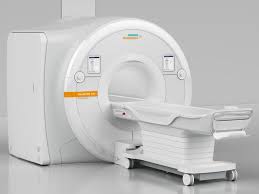Burnout syndrome, first defined by Herbert Freudenberger in 1974, is a psychological problem in which emotional exhaustion, depersonalisation, and a reduced desire for personal achievement occur as a result of prolonged or repetitive work stress caused by professional activity that does not meet expectations. The World Health Organisation defines burnout syndrome as chronic workplace stress that cannot be successfully managed.
What is Burnout Syndrome?
Burnout syndrome is when a person’s energy decreases due to the stress and pressure experienced in their work or social life getting out of control; they cannot manage this process emotionally and are worn out. When the person suffering from burnout syndrome does not like their job, is not satisfied with the work done and has problems in relationships in their social life, they may enter a severe depression period by experiencing burnout syndrome.
In the intense turmoil and the hustle and bustle of life, a person may forget to breathe, retreat, and rest. This process causes the person who does not spare time for their psychology and emotions to experience an emotional collapse over time and become exhausted. Psychologically, this collapse leads to burnout syndrome.
What are the Symptoms of Burnout Syndrome?
The most common visible symptoms of burnout syndrome include feeling exhausted, becoming unable to do their daily work, becoming desensitised, feeling nervous, disturbed sleep and becoming vulnerable to diseases such as flu over time.
Symptoms of burnout syndrome may vary depending on the stage of the situation.
The most critical and visible symptoms of burnout syndrome are as follows:
- Energy depletion
- The person becomes cold towards their job, doubts about their job
- Decreased effectiveness and enthusiasm for work
- The person feels exhausted
- Becoming unable to do daily work
- Decreased motivation
- Insensitivity
- Tension, aggressiveness or withdrawal
- Increased negative thoughts and pessimism
- Despair
- Feeling worthless
- Sleep disturbance
- Vulnerability to diseases such as influenza
Sense of exhaustion and fatigue
This feeling can be reflected in the body physically and in terms of fatigue. The energy possessed is depleted and decreases over time.
Depersonalisation
This feeling is accompanied by numbness. Avoiding contact with people intensifies the feeling of indifference.
Decrease in personal success
Over time, personal success decreases when it becomes impossible to do business due to stress. A job that was previously done with pleasure may no longer be enjoyable and may cause a loss of creativity and concentration.
The physical, emotional and behavioural symptoms of burnout syndrome can be listed as follows:
Physical symptoms
- Feeling tired
- Difficulty sleeping
- Change in appetite
- Headache or muscle pain
Emotional symptoms
- Lack of motivation
- Feelings of self-doubt
- Feelings of failure or loneliness
- General dissatisfaction
Behavioural symptoms
- Social isolation
- Failure to fulfil responsibilities
- Work-related outbursts of anger
What Causes Burnout Syndrome?
Working under intense stress and pressure, being mobbed, tension and anxiety caused by being asked to do things urgently, a competition-oriented working environment and problems in relationships in social life are among the factors that lead to burnout syndrome.
High stress in daily life may not always lead to burnout syndrome. When stress is well managed, the side effects of burnout syndrome do not occur. However, some people and professionals are under higher stress and pressure than other employees. Heavy workloads can cause some individuals to experience burnout syndrome.
The causes of burnout syndrome can be listed as follows:
- Working under intense stress and pressure
- Being mobbed
- Tension and anxiety due to time pressure
- A competition-orientated working environment
- Problems in relationships in social life
Time pressure, stress and anxiety
People subjected to time pressure to do their work during the day are especially likely to experience burnout syndrome.
Feeling the lack of communication and support expected from the manager or being mobbed
The manager’s support for the employees acts as a psychological buffer by preventing the person from being exposed to stress. Employees who feel supported by managers are less likely to experience burnout syndrome. In addition, the risk of burnout syndrome increases in people whose managers mob at work.
Lack of clarity in the role
Employees act by knowing what is expected of them while doing their jobs. When these expectations become frequent and unclear, the employee will likely suffer from burnout syndrome.
Unmanageable workload
A sense of hopelessness may arise when a person’s workload feels unmanageable during the day. This can progress rapidly and lead to burnout syndrome.
Unfair treatment
Being exposed to unfair treatment at the workplace, where the person spends the most time, may cause a high level of burnout syndrome. Unfair treatment includes situations such as favouritism and being poorly treated by a colleague.
How is Burnout Syndrome Diagnosed?
There are questionnaires created to diagnose burnout syndrome. However, it needs to be clarified whether these questionnaires can measure burnout and distinguish it from other diseases. Symptoms that occur as a result of burnout can often be seen in depression, anxiety disorder and chronic fatigue syndrome. For this reason, it will be helpful to see a specialist doctor first.
How Does Burnout Syndrome Pass?
To overcome burnout syndrome, you must first determine your priorities in life. Spend as much time as possible on the activities you care about, and spend time with your family or loved ones every evening. The satisfaction of doing what you want to do by spending time with them reduces restlessness and anger.
Apply this prescription to your life to get rid of burnout syndrome:
- Identify your priorities in life
- Spend time with your loved ones
- Don’t forget to share your feelings
- Exercise regularly
- Take short breaks during the day
- Try to sleep at least 7-8 hours
- Eat a healthy diet
- Take up hobbies, especially reading books
- Do not hesitate to seek professional support when necessary
Frequently Asked Questions About Burnout Syndrome
What is burnout syndrome?
Burnout syndrome is a psychological condition in which a person feels hopeless, exhausted and exhausted due to problems in the work environment or social life.
What is the difference between burnout syndrome and depression?
Symptoms of burnout syndrome, such as extreme fatigue, depersonalisation and a decrease in personal achievement, also occur in depression. Due to the similarity of symptoms, some people may be diagnosed with burnout syndrome even though they have depression. This may lead to incorrect treatment and may cause the depressed person to get worse.
To recognise burnout syndrome, it is necessary to look for some specific characteristics. Most of the burnout syndrome is related to the person’s work. In depression, on the other hand, negative thoughts and feelings are not only related to work but also to the whole life. People with burnout syndrome may not always be depressed, but their risk increases.
Who is most likely to suffer from burnout syndrome?
Burnout syndrome is more common in people who work at an intensive work pace and in people with high levels of stress and anxiety.
What happens if burnout syndrome progresses?
In cases where burnout syndrome progresses over time, both psychological and physical diseases such as depression, panic attacks, diabetes and heart disease may occur.






